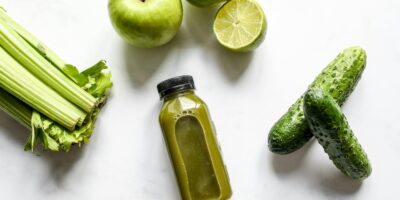Runner's Gut: What it is, causes and prevention from IBS and Sports Dietitian Kelsey Paterson
Exercise is a crucial part of a healthy lifestyle, offering numerous benefits to the body, mind and gut. However, for some individuals, exercise can result in debilitating gastrointestinal upset, commonly known as Exercise-Induced Gastrointestinal Symptoms (GIS) or more commonly referred to as “runner’s gut” or “runner’s trots”.
Runner’s gut encompasses a range of digestive issues experienced during or after physical activity. Common symptoms include bloating, cramping, diarrhoea, constipation, reflux, nausea and vomiting. Runner’s gut can affect individuals of all fitness levels and vary in intensity and frequency.
Causes of Runner’s Gut:
- Exercise Intensity and Duration: High-intensity or prolonged exercise can divert blood away from the gastrointestinal tract, causing disturbances and discomfort.
- Mechanical Stress: The physical jostling of the digestive organs during exercise can lead to discomfort and symptoms.
- Dehydration: Inadequate hydration can exacerbate gastrointestinal issues during exercise.
- Food Choices: Consuming certain foods or beverages before exercising can irritate the gastrointestinal tract and trigger symptoms. For people with IBS, eating high FODMAP foods prior to exercise can increase cause gastrointestinal disturbances resulting in runner’s gut.
Foods to Avoid or Limit
To manage runner’s gut, it’s crucial to be mindful of the foods and beverages consumed before and during exercise. Some foods may exacerbate symptoms, so we recommend to avoid or limit:
- High Fiber Foods: Fiber-rich foods can cause bloating and gas. While fiber is generally essential for digestion, large amounts before exercise can be problematic e.g. lentils/legumes, wholegrains, lots of fruits or vegetables.
- High Fat Foods: High fat meals can slow down digestion and cause discomfort during exercise.
- High protein foods: Protein slows down digestion and can cause discomfort during exercise.
- Spicy or Acidic Foods: Spices and acidity can irritate the gastrointestinal tract, leading to symptoms like heartburn, reflux or nausea.
- Dairy Products: Particularly for those who are lactose intolerance, this can contribute to gastrointestinal distress, so it’s wise to limit lactose containing foods such as cows milk and yoghurt before exercise.
So what foods should I eat before exercising?
We recommend reaching for foods that are lower in fibre e.g. white bread, white rice, breakfast cereals without nuts e.g. special K, Cornflakes, rice bubbles, weetbix, potatoes, crumpets etc.
Some example pre-running snacks include:
- Peanut butter and/or jam sandwich
- Bowl of rice bubbles or cornflakes, milk and a banana
- Muesli bar + a piece of fruit
- Crumpets with butter and golden syrup
These foods will provide you with the carbohydrates that you need to complete your exercise, without overwhelming your digestive system by creating too much gas.
Tips for managing Runner’s Gut:
- Hydration: Make sure you are hydrated before exercising and consume fluids during, if needed. Electrolyte drinks are not essential during exercise, however if you are a heavy sweater or you are exercising for long periods of time, then they may be beneficial.
- Listen to Your Body: Pay attention to how your body responds to different foods and exercise routines. Adjust accordingly to find what works best for you.
- Consult a Professional: If symptoms persist or worsen get in touch with a dietitian who specialises in gut health and/or sports nutrition.
- Plan accordingly: If going out for a run or a ride, plan your trip around access to public toilets just in case, there is nothing worse than suddenly needing to go, and not knowing where you can go!
Published: 14th October 2023
Author: Kelsey Paterson Monash FODMAP trained Dietitian





Comments (0)